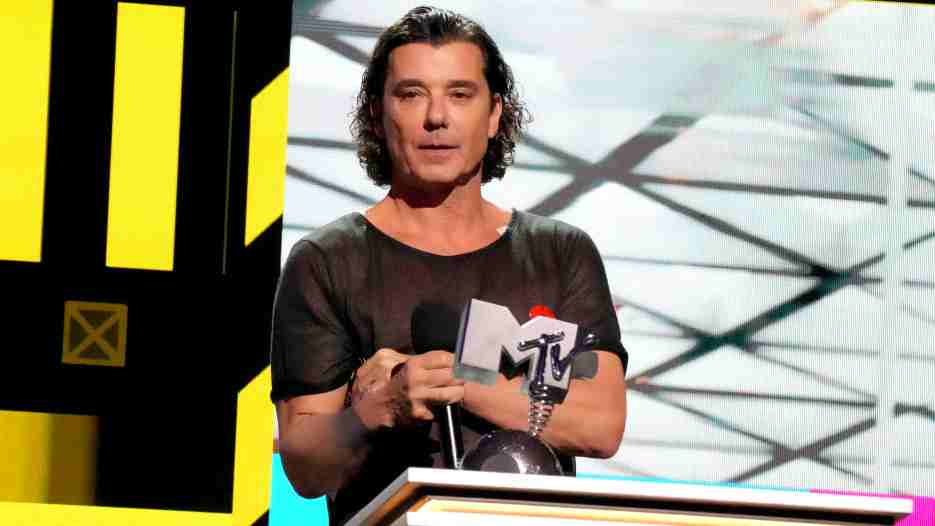“How do musicians and young bands get paid? I can’t work it out”: Turns out that Gavin Rossdale doesn’t have the answers
In an age where musicians are struggling, the Bush frontman airs his fears for the future

No matter what you might hear elsewhere and no matter how all-powerful and triumphant the music industry appears to be, it’s safe to say that the business of making money from music is a world away from rock’s wilder-yet-steadier years.
And Gavin Rossdale probably knows better than most just how lucky he is to be born, talented and discovered just in time to ride in on the music biz’s last hurrah.
The Bush frontman has just broken cover as a guest of Tom Power, appearing on his Q YouTube show in advance of his band embarking on a new US tour alongside Rival Sons and Filter. After chewing the usual fat, conversation turned to the current state of the music industry and Rossdale – famous early enough to get paid by a record company machine since dismantled by piracy and the strange, endless netherworld of streaming – quickly pounced on the opportunity to air his (and countless other musicians') worries for the future.
“Obviously, when I began, if you made something good, people might buy it,” Rossdale explained. “Now, if you make something good, people might stream it. I have two sons that are poised to make music their lives, and I couldn’t be more concerned for them.
“I’ve been a musician my whole life and I’m at a loss to explain to someone how to do it. How to build from the ground up, how to get a career in that? It’s just terrifying because how do musicians, how do young bands get paid? I can’t work it out. I don’t know.”
The Only Way Out
With record companies making millions acting as tastemakers and gatekeepers (and they certainly did during Bush’s 1990s ascendancy) they had the cash to invest into the talented, but ultimately lucky bands deemed worth their time and money. After all, for every ten that failed, one success would pay all the bills and then some.
But with piracy punishing the majors for years of over-priced, boring business-as-usual, and with streaming services stepping in to save their back-catalogue bacon (while axing new investment and throwing pennies to the artists making the music) it’s a rather different story today.
Want all the hottest music and gear news, reviews, deals, features and more, direct to your inbox? Sign up here.
And it’s safe to say that Rossdale has a point.
“Maybe you get one song with loads of streams? And we know that Spotify barely pays,” Rossdale reckons. “And whatever they do pay, the record companies make sure they siphon off most of it before it goes to the artist. So it’s the same deal – artists getting screwed, record companies making a fortune and getting all the money. So same shitty business, but if you love it, what are you gonna do?”
Fortunately, there is some faint light at the end of Rossdale’s rant: “You can obviously make money touring, but it takes a while to build up a catalog, so if [they] wanna come and see you, that’s a crap shoot.”
“The difference is that I think it’s much, much harder now, and it was nearly impossible then! So, I don’t know what the odds are, but they don’t feel good for young musicians, which breaks my heart for them because we always need music. We always need people’s opinions.
“AI can take care of many things, but you talk about people relating to other people, it’s by writing that brutally painful, honest lyric that other people can relate to and get strength from. That exchange will never go away because people will continue to be upset and look for other people that understand.”
After we published this article a Spotify spokesperson got in touch. In response, they said, “As Gavin correctly points out, streaming services do not pay artists or songwriters directly. They pay rightsholders, who in turn pay artists and songwriters based on their individual agreements. Once that revenue leaves a service like Spotify’s hands, how much money goes to artists and songwriters depends on their own contracts with their rightsholders.
"It’s a misconception that Spotify ‘doesn’t pay well’ - as we’ve proved time and time again. The $10B we paid out in 2024 and $60B all time is industry-leading and record-breaking - the largest contribution to the music industry.
"We’ve also seen the number of artists “making it” grow from hundreds competing to be in the Top 40 to hundreds of thousands vying to be among the top thousand. There are now over 66,000 artists generating at least $10k from Spotify payouts, and the number of artists generating at least $1M, $100K and $10K, has nearly tripled since 2017. Industry analysis suggests that these artists’ total overall revenue is x4 that when you take into account their additional revenue streams. The music industry is healthier than ever.”
Check out the full Gavin Rossdale interview above, cross your fingers for the future and go throw some money at your favourite new band.
Daniel Griffiths is a veteran journalist who has worked on some of the biggest entertainment, tech and home brands in the world. He's interviewed countless big names, and covered countless new releases in the fields of music, videogames, movies, tech, gadgets, home improvement, self build, interiors and garden design. He’s the ex-Editor of Future Music and ex-Group Editor-in-Chief of Electronic Musician, Guitarist, Guitar World, Computer Music and more. He renovates property and writes for MusicRadar.com.

